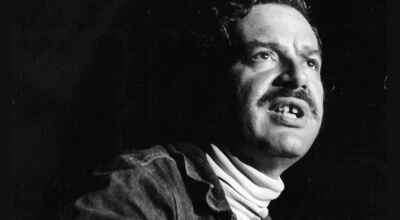Moishe Rosen, founder of Jews for Jesus, looks back on his confrontational career with plenty of satisfaction—and few regrets.
Moishe Rosen spends a lot of time resting now as he copes with the effects of prostate disease that metastasized into bone cancer. Last fall, he nearly died after surgery for an intestinal blockage.
Although outlasting the doctor’s prediction in January 2008 that he wouldn’t live past Thanksgiving, soon after that surgery Rosen considered hospice care. Ultimately, he rejected it, reasoning he didn’t want it until he was unable to get out of bed.
“At 77, how much longer should I live?” asks the outspoken founder of Jews for Jesus (JFJ), who turns 78 if he survives until April 12.
“Do I mind going?” he asks. “I don’t know if I’ll like the journey, but I’ll let you know when you get there.”
That humor demonstrates the wit that long ago prompted Brooklyn’s Jewish Press to declare that Rosen was obviously using Madison Avenue advertising writers. No simple evangelist could write so persuasively, the newspaper theorized.
Though the Press didn’t know it was praising Rosen, his flock of admirers has no such reticence. They know that this somewhat cantankerous guy is one of the true fathers of Jewish evangelism in the modern world.
For Jay Sekulow, chief counsel for the American Center for Law and Justice (ACLJ), memories of Rosen go back to 1987, when the two men stood outside the U.S. Supreme Court building. Sekulow had just completed oral arguments in defense of JFJ’s right to distribute gospel tracts at the Los Angeles International Airport.
“Moishe turned to me and said, ‘I think you’re going to be here often,’” Sekulow recalls. “I laughed because nobody was here that often, especially in those days. One out of 10,000 lawyers maybe argues a case, and that’s probably an overstatement.”
Sekulow not only secured a victory for JFJ, he has returned to the high court 13 times while serving as a thorn in the side of liberal activists.
Marveling at Rosen’s insight, Sekulow remembers later walking by a building at Second Street and Constitution Avenue. Noticing a “for sale” sign, Rosen remarked that his attorney ought to buy it. Though Sekulow scoffed, close to a decade later ACLJ did just that.
“The guy had tremendous foresight in a whole lot of areas,” Sekulow says. “And he was relentless. I never saw him take a setback as something that was going to be a permanent situation.”
Add to that toughness a pioneering spirit, says JFJ board member Lon Solomon. When the suburban Washington, D.C., pastor became a believer in 1971, he reasoned that he must be the only Jew who believed in Christ as Messiah. After all, he didn’t know any others who did.
Now if a Jew makes that decision, it is no secret that he has company. Solomon credits this shift in cultural awareness to JFJ’s overt, unashamed proclamation of the gospel to Jews.
“More than any other single person, Moishe has been responsible for putting the idea of being Jewish and believing in Jesus on the map,” says Solomon, pastor of McLean Bible Church in northern Virginia. “He has inspired several generations of young Jewish men and women to have a burden to reach their own people. He has been a marvelous example.”







Leave a Comment
You must be logged in to post a comment.